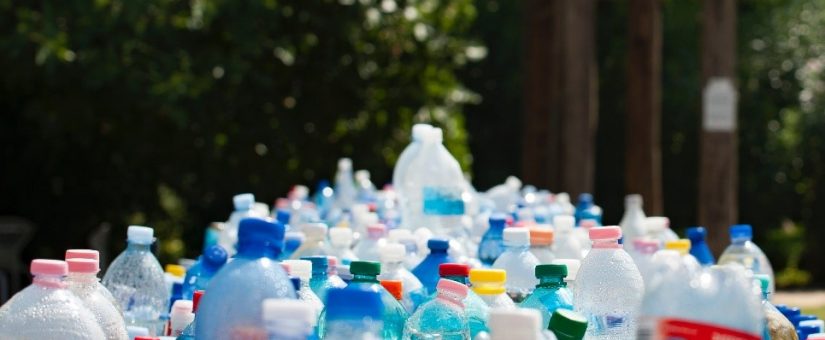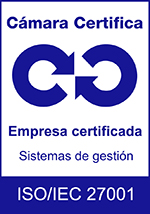Plastic pollution and its CO2 impact
With all attention focused on climate change action plans climate change action plans and energy transition, we cannot forget what we can all do in terms of reducing the pollution caused by plastics. Single-use plastic packaging is a major component that produces millions of kilograms of waste annually. Plastic does not disappear when it degrades; its compounds only break down into tiny particles, called microplastics. According to UN data, there are about 51 trillion micro plastic particles in the sea.
All of these if not properly recycled as we see end up in waterways, and we well know that these plastics increase the amount of CO2 in the atmosphere contributing greatly to climate change. By 2050, greenhouse gas emissions from plastics could reach 56 gigatons or up to 13% of the Earth’s entire remaining carbon budget. To manufacture one kilo of plastic from scratch, 3.5 kg of CO2 are emitted and if it is recycled, 1.7 kg of CO2 are emitted.
But it is not only us citizens who must personally address this issue in reducing the use of plastic content or improving our recycling, but also the companies that manufacture and distribute plastic packaging content.
According to the report, Waste & Opportunity 2020: Searching for Corporate Leadershippublished last month by As You Sow, concludes that companies are too slow to take responsive action and promote the reuse, recycling or compostability of their packaging, and are not moving away from packaging that generates waste and pollution.
Conrad MacKerron, senior vice president of As You Sow and lead author of the report said, “Businesses have an absolute responsibility to reduce plastic pollution.” In the main focus are the consumer goods industries that are not addressing this issue and are not taking financial responsibility for improving recycling.
The report analyzed the actions, or inactions, of consumer-oriented companies to reduce plastic pollution. Of the companies in the beverage, quick service restaurant, consumer packaged goods and retail sectors, the highest grade was a B-, on a scale of 1 to 10 that would be an 8. Among the companies studied were major, multinational companies, being the biggest plastic polluters.
The companies’ actions were analyzed and rated based on the following six pillars six pillars that companies should implement to address the plastics crisis:
- packaging design
- reusable containers
- recycled content
- data dissemination
- voluntary support to improve recycling systems
- mandatory financial responsibility to improve such systems
The greatest progress was evidenced by pledges to redesign packaging to be reusable, recyclable or compostable, followed by commitments to increase recycled content and measures to support the latter. There was notably less leadership in the areas of reusable packaging innovation, data transparency and producer responsibility. These results indicate that companies have a long way to go to move from single-use plastics to reusable alternatives, take financial responsibility for driving the recycling system, and achieve a more circular plastics economy.
Key recommendations at the company level:
- Prioritize setting targets to reduce overall plastic use and use high levels of recycled content
- Adapt packaging design to available recycling systems so that more packaging can be recycled and not thrown away.
- Refrain from further packaging of products in flexible plastic until these materials can be recycled.
- Contribute up to one percent of annual revenues to help fund the infrastructure improvement and market development needed to dramatically increase recycling yields
- Prioritize long-term contracts with recycling processors to signal a serious commitment to the use of recycled plastic raw materials and create a circular economy for plastic packaging.
Taking these measures is essential given the prediction that plastic production will quadruple by 2050.
Key recommendations at a personal level:
- When shopping, let’s use cloth or ecological bags. It is best to buy food in bulk such as rice, cereals, legumes, etc. so that we can place them in reusable items. A single plastic bag can take about 1,000 years to degrade.
- Preferably, consume fresh fruit juice instead of bottled beverages. In addition, this way we will be taking care of our health.
- Avoid buying frozen foods that are full of unnecessary packaging.
- Let’s separate waste to recycle it correctly. If good waste management were carried out in every household, either by promoting recycling or separating the different types of waste, we would reduce waste by up to 90%.
These are just a few simple but essential recommendations to reduce plastic pollution in our homes. Especially during the summer or vacation season, we could all make an effort to avoid buying bottled water, and think about other alternatives. For example, we can refill our container at home and take it with us so that we always reuse the same container instead of using others.
If we all contribute with these and other measures we will help reduce this plastic pollution crisis.
From Laragon Sustainability Solution we have been a benchmark in the digitization of many of these initiatives for more than 15 years, providing companies with our experience in optimizing all company processes towards sustainability, transparency, risk management and good governance.s


